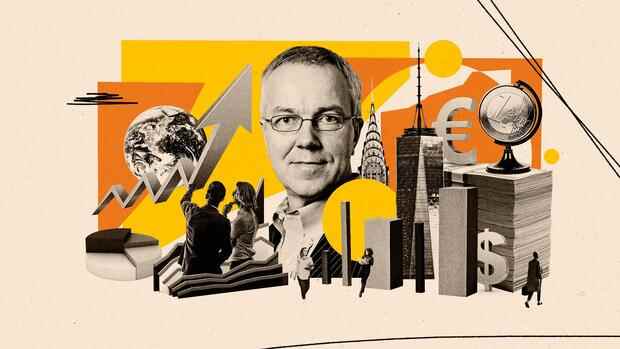Keynes always helps. When economists think aloud these days about the supposed end of globalization, they like to quote their old master. “A resident of London, while sipping his morning tea in bed, could order by telephone the various products of the whole world (…) and expect their speedy delivery to his doorstep”, was how John Maynard Keynes described the life of the English upper class on the eve of the First World War .
Similar to today, the elites from business and politics believed that the close economic ties between the large industrial nations guaranteed the peaceful coexistence of peoples.
“It is the sophisticated interdependence that causes, not only in the economic sense but in every sense, that an unjustified aggression of one state against another falls back on the interests of the aggressor,” asserted the English writer Norman Angell in his 1909 book The Great Illusion” and later even received the Nobel Peace Prize for it.
Just as the two world wars of the 20th century abruptly ended the first phase of globalization, the war in Ukraine could now become the turning point of the second hyper-globalization.
Top jobs of the day
Find the best jobs now and
be notified by email.
“Russia’s aggression in Ukraine and its subsequent decoupling from the global economy will prompt companies and governments worldwide to reassess their dependencies and reanalyze their manufacturing and assembly capacities,” predicts Larry Fink, chief executive of the world’s largest asset manager Blackrock.
Nearly 500 international companies have pulled out of Russia since Putin’s war began, according to Yale professor Jeffrey Sonnenfeld.
“Until recently, nobody could have foreseen the current situation,” says BASF CEO Martin Brudermüller, referring to Germany’s dependence on Russian energy supplies. Not only the portents of Putin’s aggressive power politics could be seen since the annexation of Crimea in 2014 at the latest. Anyone who wanted to understand the signs of the times, from Brexit and Trump’s “America first” policy to the pandemic, could also see the growing risks for global value chains.
The Russian crisis will not deal the deathblow to globalization. Despite its raw material power, Putin’s empire is economically too small for this. The crucial question for Fink, Brudermüller and Co. is: How do you feel about China?
After the EU-China summit that just ended, it is clear that the days of business-as-usual are also over in relation to Beijing. “This is about trust, reliability and decisions about long-term investments,” said EU Commission President Ursula von der Leyen considering China’s ambiguous stance on Putin’s war.
A cloak of silence hangs over China
It speaks volumes that CEOs like Fink and Brudermüller are silent on the China issue. China and Russia cannot be compared, says the BASF director, pointing out the enormous importance of the Middle Kingdom for our prosperity. And for the well-being of both the German chemical giant and the US wealth manager, one might add.
If Brudermüller is not mistaken. An attack by China on Taiwan has long since become a “grey swan” on the financial markets – i.e. a possible event with shocks for the global chip market.
The US chip manufacturer Intel is also building new factories in Ohio and Magdeburg for this reason. According to a new Ifo survey, almost every second German company wants to reduce its imports from China. Even Volkswagen, which sells around 40 percent of its cars in China, wants to reduce its Chinese cluster risk.
Fukuyama is out, Huntington is in
So the turning point is also making itself felt in the minds of CEOs. For years they trusted Francis Fukuyama’s famous prophecy of the “end of (warlike) history” and sacrificed safety concerns to the primacy of efficiency. Today they switch to the camp of Fukuyama’s teacher and opponent Samuel Huntington, who prophesied a world full of tensions and conflicts with his classic “Clash of Civilizations”.
More: Europe and China at a crossroads: The Ukraine war could lead to a break in economic ties

